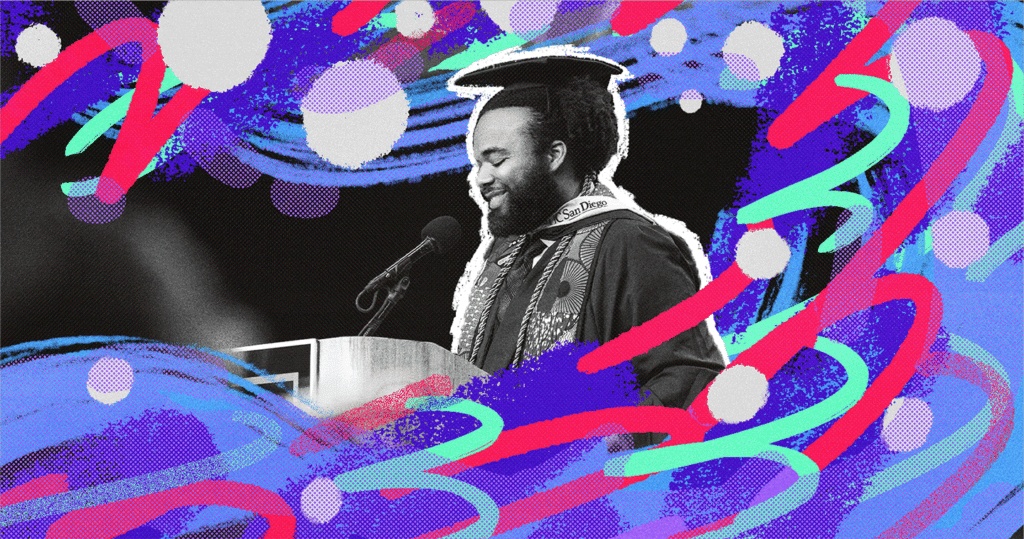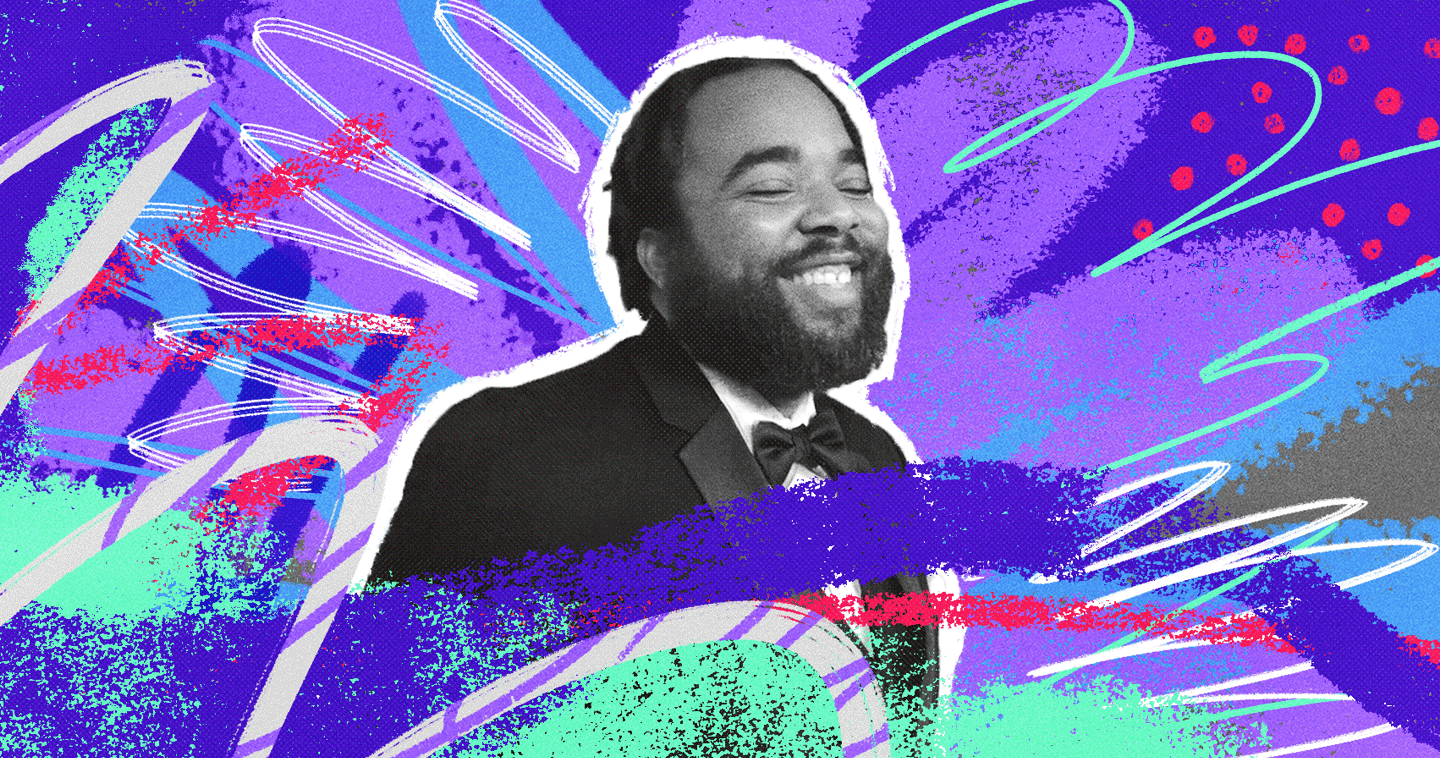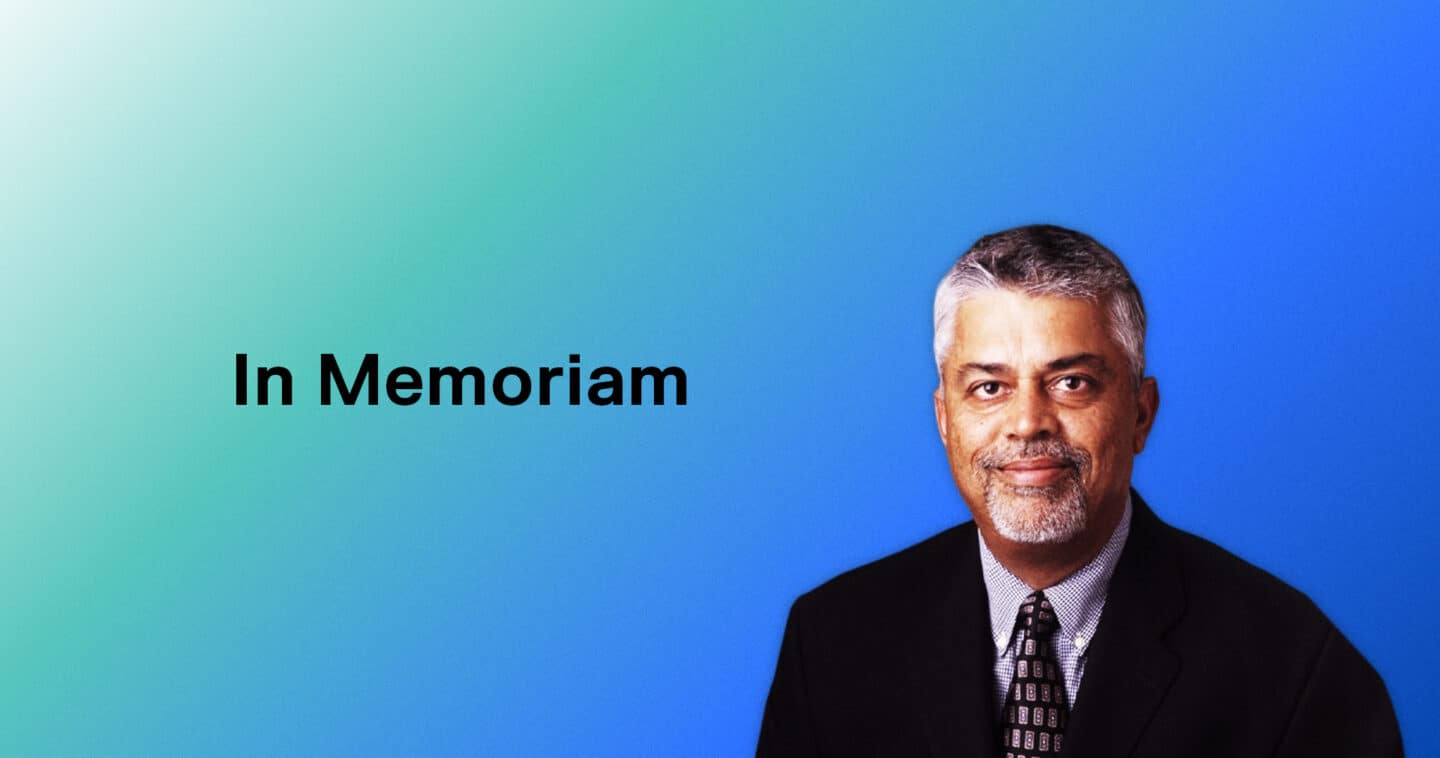What’s Your Create: Kyler Nathan IV
Everything begins with a story for Kyler Nathan IV. After the recording starts, he settles in, comfortable and composed. Nathan’s a true renaissance man, writing poetry, producing podcasts, educating students, and building communities. No matter what he’s focused on, it always comes back to stories.
“When I look back at college, or any time in my life, there’s always a story,” he said. “It was never really just about assignments, but it’s about this period surrounded by these specific people in a specific place.”
The people, the places, and the communities they make up are the true focus for Nathan, and where all his work intersects. Instead of being in service of the story, his work is a story of service and making representative content.
Finding the stories
Nathan first started pursuing art and storytelling as a college student, supported by a small group of friends. He slowly gained confidence and continued writing but was eventually thrust into the spotlight by his community.
“When I was working at [UC San Diego’s] Black Resource Center, we put on this event called Flexin’ My Expression, and we wanted to have an open mic at the event. All my friends were like ‘Are you gonna perform?’ but I had never performed my poetry out loud before,” said Nathan.

Nathan eventually agreed to read his poetry, embracing the vulnerability of sharing his work. The reading, performed for an intimate crowd of friends and supporters, was a transformative experience for the young artist.
“Growing up kind of shy and reserved, it was really affirming to hear that people cared about what I had to say. After that, I said ‘OK, let’s keep putting pieces of myself out there, let’s find the people that value me and my story,’” he said slowly.
Talking with Nathan feels easy. He takes smart, measured pauses and knows the best details to highlight and embellish. His is an unhurried confidence, which makes it hard to imagine him as a nervous student, finding his voice and honing his craft.
Sharing other stories
Nathan continued to write and perform through college and after graduation. It was a rewarding outlet for him, sharing his art and personal stories, especially as he adapted to post-graduation life. Once COVID-19 lockdowns hit, though, Nathan was able to zoom out and focus not just on his story, but on the craft of storytelling.
“During the pandemic, we all got into our hobbies and obsessions. For me, I just became infatuated with movies and storytelling,” he said. He’s uncharacteristically sheepish about this interest, but his love for film is evident. He reminisces on watching Star Wars for the first time in 2020, still buzzing from the experience four years later.
While he chronicled his cinematic exploits on Letterboxd, he recognized a disconnect between the stories that dominated screens big and small and the stories he heard in his everyday life.
“I’d go on social media and see the latest celebrity news, the latest thing that the big rappers are doing,” he explained. “But I was surrounded by so many people doing wonderful things who didn’t have their stories out there.”
This desire to share stories and lift others up led to Nathan’s podcast, The Banquet Hall. In every episode, Nathan interviews an up-and-coming artist, entrepreneur, leader, or activist. Nathan’s goal isn’t just to offer a seat at the table, but to build a space where his community could have a seat at any table they want.
“I wanted to be able to create a platform where everybody was treated like a celebrity, no matter what they do. Why is the story of striving to be the first black doctor in your family any less important than what a celebrity wore on the red carpet?” Nathan said.
For over 50 episodes, Nathan’s helped his guests feel like stars. Thanks to the universal accessibility of digital recording tools, Nathan can share the stories of fellow poets, academic researchers, or startup founders from anywhere.
“Most people I ask don’t think they have an interesting enough story for a podcast, and I always tell guests right before we start recording: my job is to make the podcast interesting. Their job is to be themselves,” Nathan said.
Stories at work
The poetry, the podcasting, the cinephile-posting—that’s just the tip of the iceberg. During the day, Nathan works at the Scripps Institution of Oceanography, where he manages initiatives to increase diversity in the marine sciences. While it sounds deeply unrelated, he sees storytelling as a huge asset to his professional life.
“Storytelling is the tool for young people to figure it out. Whether it’s stories of success or stories of failure, those stories are what help us figure out what we want,” Nathan said.
Whether he’s working with various stakeholders around the university, or helping students overcome the numerous challenges of college life, Nathan brings his storytelling lens to work. He prepares for meetings the same way he prepares for The Banquet Hall, and listening to students talk about their day helps him connect to the story of their lives to better support them. The intersection of those stories and DEI, though, is where Nathan feels most connected to the work.
“It’s so powerful to share personal stories and experiences with students about my experience as a black student at UC San Diego. If you don’t have somebody that looks like you giving you answers that are representative of your experience, you can’t really serve them or their needs,” Nathan said.
“I don’t think that I would be able to articulate my passion for DEI without thinking about it from a storytelling lens.”
Never one to stay put, Nathan’s next big storytelling endeavor is film. He’s currently researching and writing a screenplay, inspired by support from friends in his community. From his perspective, this is the logical progression of the first step he took back in college.
“As I’m thinking about the future world I want to inhabit, I want to be able to have more stories for black and brown kids,” said Nathan. “What does it look like if Black Panther isn’t the only superhero that a kid can grow up to be?”
After a beat, Nathan brings it full circle and returns the focus to the community he serves.
“I think it just all comes down to storytelling for me and helping people find, create, and tell their stories. It’s an ongoing learning process rooted in curiosity, storytelling, and service.”




